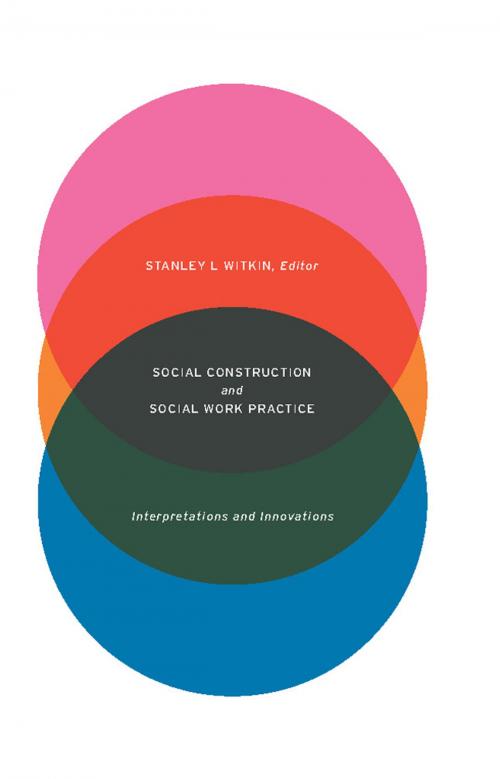Social Construction and Social Work Practice
Interpretations and Innovations
Nonfiction, Social & Cultural Studies, Social Science, Methodology, Social Work| Author: | ISBN: | 9780231530309 | |
| Publisher: | Columbia University Press | Publication: | November 22, 2011 |
| Imprint: | Columbia University Press | Language: | English |
| Author: | |
| ISBN: | 9780231530309 |
| Publisher: | Columbia University Press |
| Publication: | November 22, 2011 |
| Imprint: | Columbia University Press |
| Language: | English |
Social construction addresses the cultural factors and social dynamics that give rise to and maintain values and beliefs. Drawing on postmodern philosophies and critical, social, and literary theories, social construction has become an important and influential framework for practice and research within social work and related fields. Embracing inclusivity and multiplicity, social construction provides a framework for knowledge and practice that is particularly congruent with social work values and aims.
In this accessible collection, Stanley L Witkin showcases the innovative ways in which social construction may be understood and expressed in practice. He calls on experienced practitioner-scholars to share their personal accounts of interpreting and applying social constructionist ideas in different settings (such as child welfare agencies, schools, and the courts) and with diverse clientele (such as "resistant" adolescents, disadvantaged families, indigenous populations, teachers, children in protective custody, refugee youth, and adult perpetrators of sexual crimes against children). Eschewing the prescriptive stance of most theoretical frameworks, social construction can seem challenging for students and practitioners. This book responds with rich, illustrative descriptions of how social constructionist thinking has inspired practice approaches, illuminating the diversity and creative potential of practices that draw on social constructionist ideas.
Writing in a direct, accessible style, contributors translate complex concepts into the language of daily encounter and care, and through a committed transnational focus they demonstrate the global reach and utility of their work. Chapters are provocative and thoughtful, reveal great suffering and courage, share inspiring stories of strength and renewal, and acknowledge the challenges of an approach that complicates evidence-based evaluations and requirements.
Social construction addresses the cultural factors and social dynamics that give rise to and maintain values and beliefs. Drawing on postmodern philosophies and critical, social, and literary theories, social construction has become an important and influential framework for practice and research within social work and related fields. Embracing inclusivity and multiplicity, social construction provides a framework for knowledge and practice that is particularly congruent with social work values and aims.
In this accessible collection, Stanley L Witkin showcases the innovative ways in which social construction may be understood and expressed in practice. He calls on experienced practitioner-scholars to share their personal accounts of interpreting and applying social constructionist ideas in different settings (such as child welfare agencies, schools, and the courts) and with diverse clientele (such as "resistant" adolescents, disadvantaged families, indigenous populations, teachers, children in protective custody, refugee youth, and adult perpetrators of sexual crimes against children). Eschewing the prescriptive stance of most theoretical frameworks, social construction can seem challenging for students and practitioners. This book responds with rich, illustrative descriptions of how social constructionist thinking has inspired practice approaches, illuminating the diversity and creative potential of practices that draw on social constructionist ideas.
Writing in a direct, accessible style, contributors translate complex concepts into the language of daily encounter and care, and through a committed transnational focus they demonstrate the global reach and utility of their work. Chapters are provocative and thoughtful, reveal great suffering and courage, share inspiring stories of strength and renewal, and acknowledge the challenges of an approach that complicates evidence-based evaluations and requirements.















